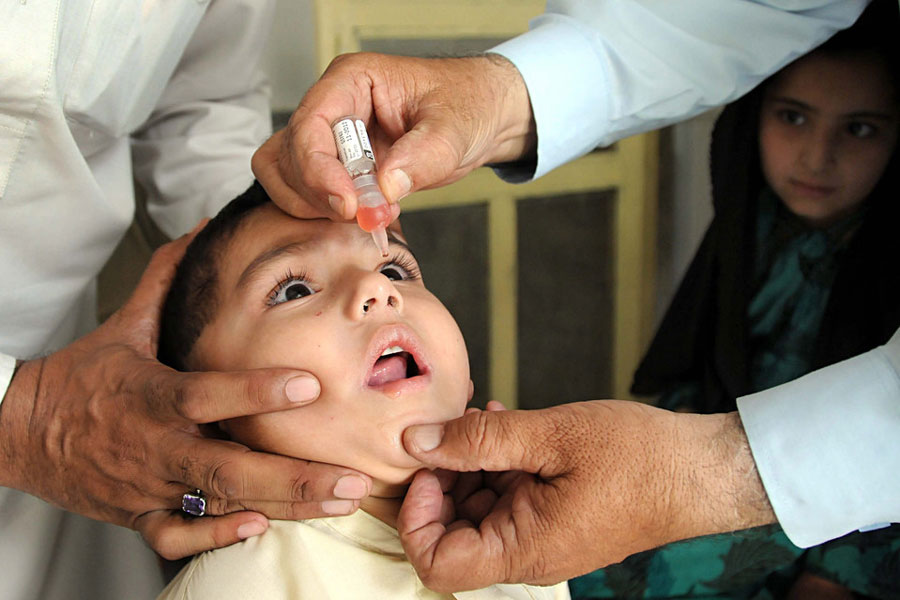
The challenge faced by polio health workers in Pakistan is fast snowballing into a crisis with armed attacks on these workers getting more frequent and lethal. In the last week of November, two brutal attacks were carried out on polio workers, killing four female health workers, and injuring more.
Considered the most deadly attacks in two years on polio workers in Pakistan’s north-western tribal areas bordering Afghanistan, these attacks have brought to the fore once again the Pakistan Taliban’s hostile and stated position against polio vaccination. The false propaganda claims that polio vaccination is against Islam; the polio workers are really “western spies under the guise of health workers” and the western nations are sterilising Pakistan’s children under the claim of immunising them against polio.
In Peshawar District, in the middle of the night, armed militants jumped over the compound wall of the house of Salma Farooqi, mother of five. She was abducted after her husband and children were tied, and next day was repeatedly shot after being tortured.
Another attack followed in quick succession, when a van carrying a group of health workers was attacked by armed militants in the south-western
city of Quetta. Motorcyclists intercepted the van and opened fire on the occupants using automatic weapons. Three women were killed and other three injured. According to the Pakistan daily Dawn, the inhabitants of the van were part of an emergency polio vaccination campaign launched by the Balochistan government with the collaboration of the UNICEF and WHO.
At 265, polio cases in Pakistan are at a 15-year high, and polio workers, particularly women, are regularly targeted by the Pakistan Taliban. While the only other two countries with polio cases — Afghanistan and Nigeria — are reporting lower numbers, Pakistan is seeing more polio cases. As the international media is zooming into Pakistan to report these dastardly attacks, there are also allegations that the Pakistan Taliban is using children as shields to persuade the US to stop its drone attacks in this region.
The tragedy is that many parents who want to give polio drops to their children are doing so by “smuggling” it in ice packs to their homes, and administering them to the children of only relatives and close friends they can trust. A few months ago, the British daily The Guardian had reported the story of Amir, 45, who clandestinely brought ice-cooled polio vaccines to his home in an interior Pakistan village to be administered to his extended family. “If we have confidence in our neighbours and close relatives then we share the drops with them, but only if we know we can trust them,” he said.
Commenting on the recent dastardly attacks PDG Aziz Memon, Chair, Pakistan National PolioPlus Committee, said Rotary International “strongly condemns such incidents in which polio workers are repeatedly targeted. We offer our heartfelt condolence to the bereaved families and request the Government to take action against persons responsible and provide proper security to polio workers.”
Balochistan Health Minister Rehmat Saleh Baloch said that the campaign would resume; “we will not give in to elements involved in killing innocent health workers.”
Added PDG Memon, “We are committed. The children of this country should walk, not crawl. We promised to end polio, and we will.”







